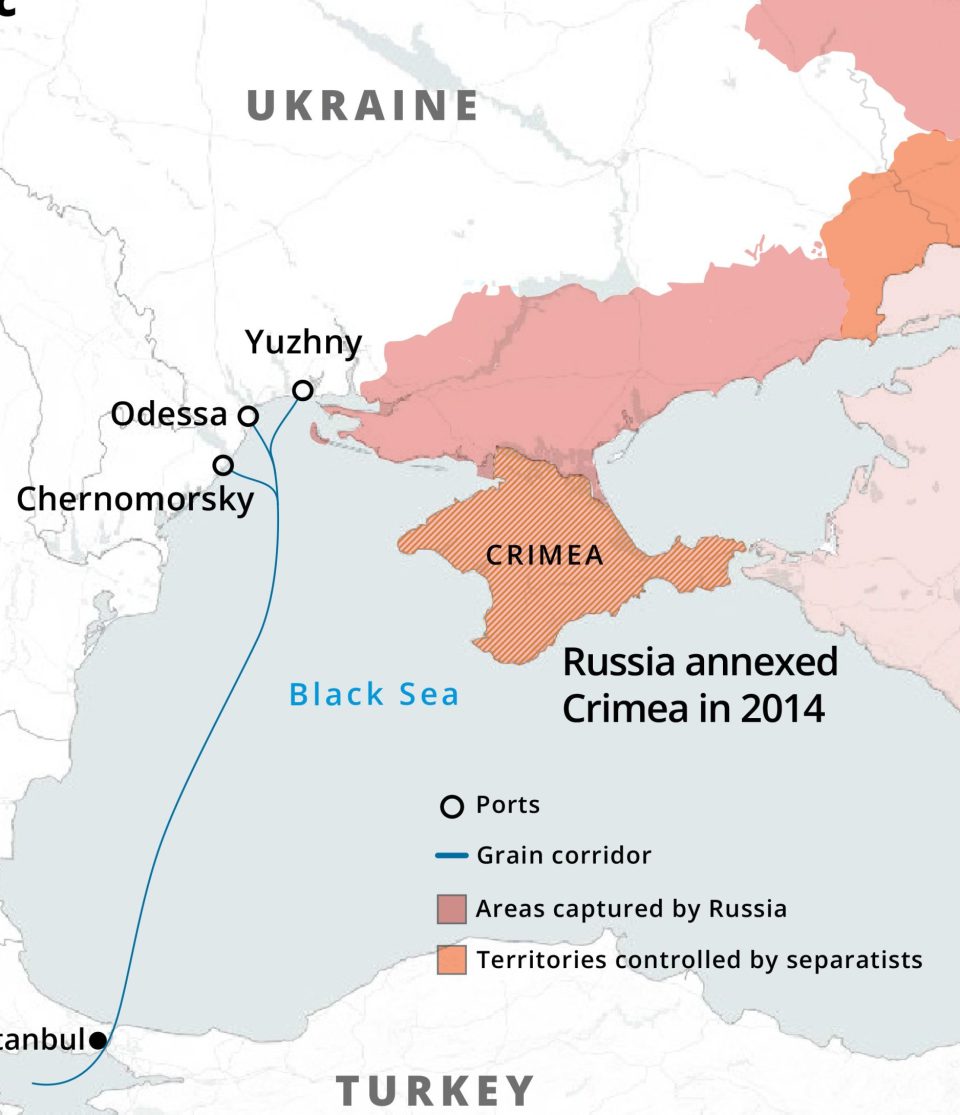US-Brokered Black Sea Ceasefire Reshapes Russia-Ukraine Conflict and Global Trade
Russia and Ukraine have reached a landmark naval ceasefire in the Black Sea, brokered by the United States, in an effort to stabilize the region and ensure uninterrupted commercial navigation. According to the White House, both nations have agreed “to ensure safe navigation, eliminate the use of force, and prevent the use of commercial vessels for military purposes,” marking a significant development in the ongoing conflict.
The Black Sea has remained one of the most contested zones in the Russia-Ukraine war, acting as Ukraine’s only maritime gateway to global trade and military supply lines. The region holds immense strategic value, serving as a critical trade corridor for grain and other essential commodities from Ukraine and Russia. For centuries, European powers have vied for influence over this body of water, and its importance has only grown in the modern geopolitical landscape.
The Black Sea is not just a battleground for Russia and Ukraine—it is also of vital significance to Romania, Bulgaria, Turkey, and Georgia, each with its own exclusive economic zone. Turkey, in particular, plays a crucial role due to its control over the Bosphorus and Dardanelles straits, which regulate access between the Black Sea and the Mediterranean. Turkey’s dominant maritime position, combined with its NATO membership and EU candidate status, allows it to exert significant influence over the region’s stability.
Russia, under President Vladimir Putin, has long sought to maintain a strategic grip on the Black Sea, as it provides the shortest naval route to the Mediterranean and beyond, including the Suez Canal. The sea has been central to Russia’s broader geopolitical ambitions, enabling military and economic maneuvering. However, Moscow’s dominance in the region has been challenged in recent years, particularly after Ukraine launched several successful attacks on Russian naval forces, significantly damaging Russia’s Black Sea fleet, including the sinking of the flagship cruiser “Moskva.”
The power dynamics in the Black Sea have been evolving since the end of the Cold War. Bulgaria and Romania joined NATO in 2004 and the European Union in 2007, aligning more closely with Western interests. Similarly, Ukraine, Georgia, and Moldova have sought greater integration with Western institutions, prompting Russia to respond aggressively. Russia’s 2008 invasion of Georgia and the 2014 annexation of Crimea led to a rapid militarization of the Black Sea, with Moscow deploying air and land-based missile systems to create “no-go” zones aimed at deterring NATO forces. However, Ukraine’s counterattacks in 2023 significantly weakened Russia’s naval capabilities, shifting the balance of power toward Turkey and NATO allies.
For both Russia and Ukraine, maintaining access to the Black Sea is critical for their economies. In 2022, the two countries negotiated a grain deal that allowed Ukraine to export essential food supplies through the sea despite the war. However, Russia later pulled out of the agreement, citing Western sanctions that hindered its own agricultural exports. The disruption of Ukrainian grain shipments had far-reaching consequences, triggering a global food crisis that especially affected Africa and the Middle East, where many countries rely on imports from the region.
The initial grain deal, brokered by Turkey and the United Nations in July 2022, permitted safe passage for Ukrainian vessels under strict inspection protocols, ensuring that weapons were not being smuggled. It also provided Russia with assurances that it could continue exporting its own agricultural products. However, Russia’s subsequent withdrawal led to renewed tensions, further destabilizing food markets worldwide.
The newly brokered ceasefire in the Black Sea could mark a turning point in the conflict, potentially opening the door for future negotiations on trade and security. If successfully implemented, it may restore stability to global supply chains and prevent further escalations in the region. However, with both sides maintaining deep-seated hostilities, the durability of this agreement remains uncertain.
For more updates and detailed video analysis, visit our YouTube channel, THE OLIGO.

